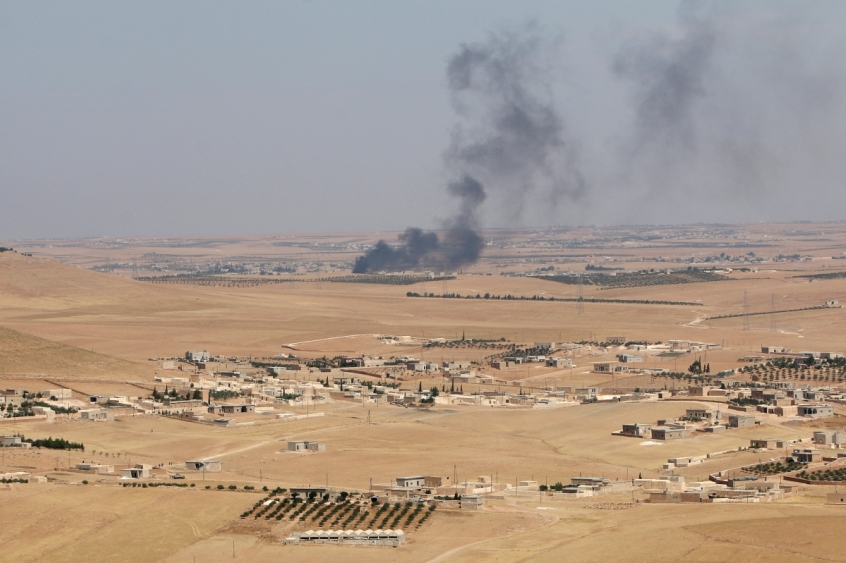A 'secret church' in Syria dating back to the first centuries of Christianity has been discovered by archaeologists in a territory held by Islamic State for more than two years.
The ancient tunnel system, found in the city of Manbij, is believed to have once served as a refuge for Christians who faced persecution during the Roman Empire, according to Fox News which toured the site.
Next to a mound used to dump rubbish, researchers found the remains of an ancient gate leading to a sprawling tunnel system containing escape routes, hidden doors, Greek inscriptions, and a makeshift altar.
Notably, crosses were etched into columns and walls alongside writings carved into stone.

The underground network is believed to have beem a significant refuge for Christians in the third or fourth century AD, Fox News reported.
The complex apparently includes a graveyard that could have been used for the church clergy, with human remains found inside large stone tombs.
Archaeologists first made the discovery in 2014 but then kept it secret before excavations could finally begin in August of 2017, a year after Islamic State was driven out of the area.
Fox News said that locals then helped to find a second element of the tunnel system, with stone steps leading down to a cave filled with rooms and Christian symbols.
'This place is so special,' said Abdulwahab Sheko, head of the exploration committee at the Ruins Council in Manbij, speaking to Fox News about the 'first location.'
'Here is where I think the security guard would stand at the gate watching for any movement outside.
'He would warn the others to exit through the other passage if they needed to flee.'
Fox News quoted John Wineland, professor of history and archaeology at Southeastern University, who provided context and said the findings 'indicate that there was a significant Christian population in the area which felt they needed to hide their activities. This is probably an indication of the persecution by the Roman government, which was common in the period.'
Wineland said that Christians were persecuted 'sporadically at first, and later more systematically by the Roman government'.
Christianity was illegal in the Roman Empire until its worship was decriminalised by Emperor Constantine in 313 AD.
Wineland said that Christians of the time 'met in secret, underground, to avoid trouble. But the Romans were fearful of any group that met in secret.'













